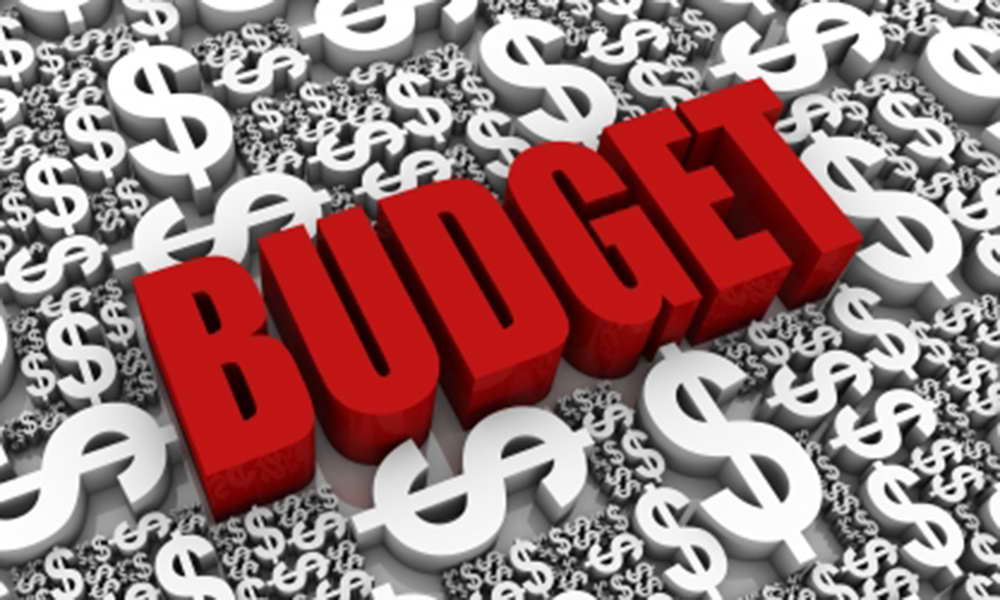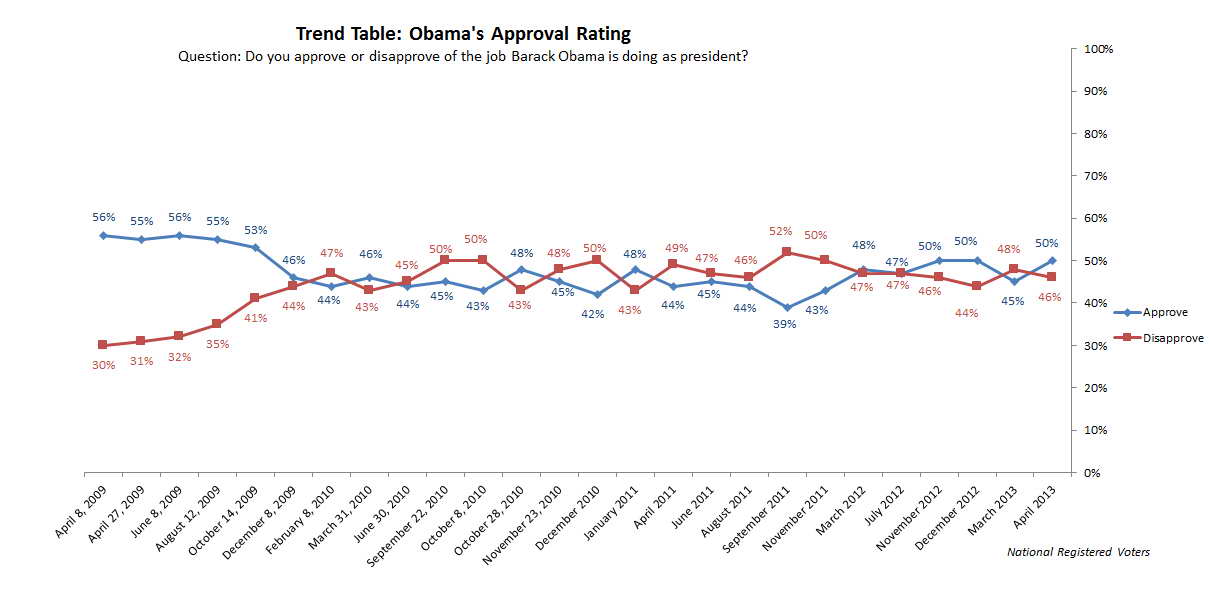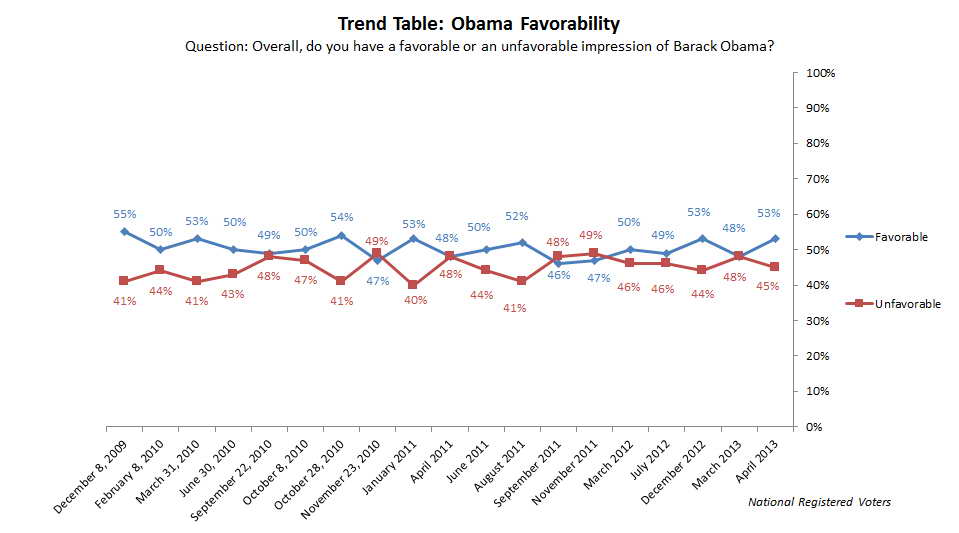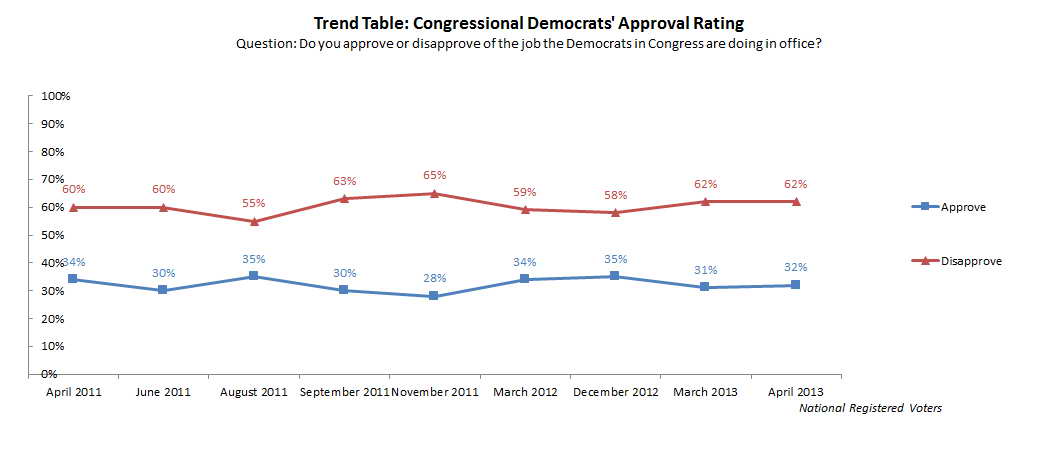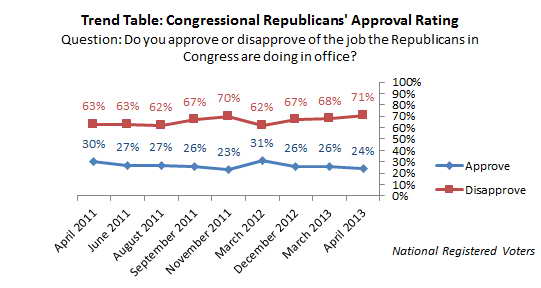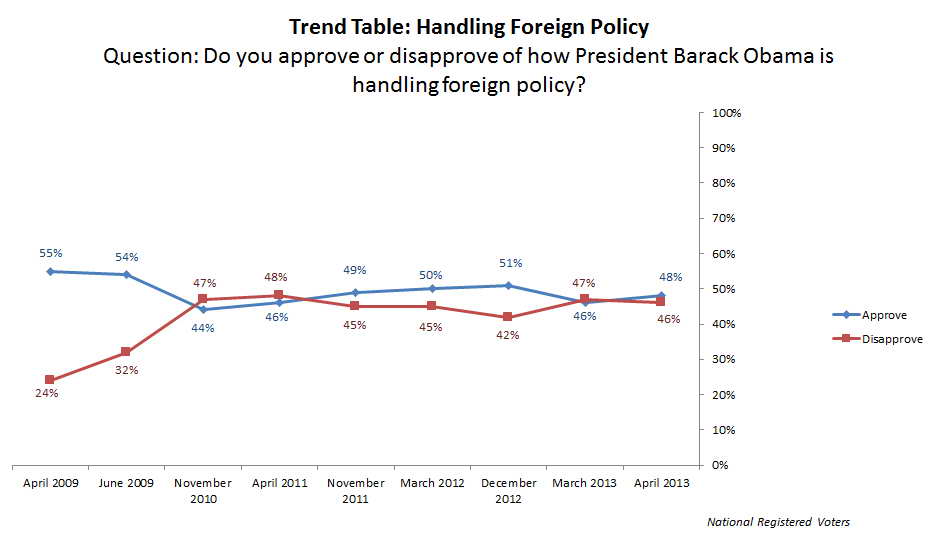April 4, 2013
4/4: Half of Voters Trust Obama Over Republicans on Budget
McClatchy/Marist National Poll
When it comes to the federal budget, 50% of registered voters nationally trust President Barack Obama to make the right decisions. This compares with 41% who have more faith in the Republicans in Congress to make the correct choices. Eight percent trust neither the president nor the Congressional GOP while only 1% of voters have confidence in both. Two percent are unsure.
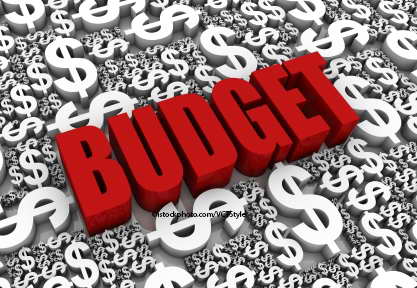 Click Here for Complete April 4, 2013 USA McClatchy-Marist Poll Release and Tables
Click Here for Complete April 4, 2013 USA McClatchy-Marist Poll Release and Tables
“There are no winners when it comes to the budget battles in Washington,” says Dr. Lee M. Miringoff, Director of The Marist College Institute for Public Opinion. “If forced to choose, more voters side with President Obama over the Congressional Republicans.”
By party:
- Voters’ views fall along party lines. 88% of Democrats have more faith in the president to make the appropriate budgetary decisions.
- 85% of Republicans have more confidence in the Congressional GOP.
- Among independent voters, 46% express more trust in the president to decide on fiscal matters while 37% place greater faith in the hands of the Republicans in Congress.
Who is to blame for the gridlock on the federal budget? Nearly half of registered voters — 48% — point a finger at the Republicans in Congress for the stalemate. 34% place the onus on the president while 11% say both parties are responsible. Seven percent of voters report neither are to blame or are unsure.
By party:
- While there is a partisan divide, about one in six Republicans blame the Congressional GOP for the stalemate. 68% of Republicans say President Obama is at fault, but 17% blame the Republicans in Congress.
- Among Democrats, 79% place the blame on the Republicans in Congress and only 10% fault the president.
- A plurality of independents — 45% — say the Republicans in Congress are the cause of the gridlock while 32% point a finger at the president.
Table: Who Voters Trust More to Deal with Budget
Table: Blame for Gridlock on the Federal Budget
No Winners in Budget Give and Take
President Obama, however, does not come out unscathed in the budget debate. A majority of voters — 56% — disapprove of how he is handling the budget negotiations with the Republicans in Congress. 38% approve, and 6% are unsure.
By party:
- 88% of Republicans believe the president is falling short in the negotiating process.
- While 67% of Democrats praise Mr. Obama’s efforts, nearly one in four Democrats — 24% — disapprove of how the president is handling the process.
- More than six in ten independents — 61% — think the president needs to revamp his negotiating skills.
The Republicans in Congress fare worse than the president. Almost seven in ten registered voters — 69% — disapprove of how they are conducting themselves during the budget negotiations with President Obama. 24% approve of their actions, and 7% are unsure.
By party:
- Even a slim majority of Republicans — 51% — disapprove of how the GOP in Congress is handling budget negotiations while 45% approve.
- 84% of Democrats are dissatisfied with how the Republicans are negotiating with the president.
- 70% of independents disapprove of the way the Congressional Republicans are negotiating with the president.
Table: President Obama’s Handling of Budget Negotiations
Table: Congressional Republicans’ Handling of Budget Negotiations
More Americans View Sequester Cuts as No Big Deal than a Month Ago
When it comes to the impact of the automatic spending cuts on the economy, 40% of adults nationally say they have had no effect on the economy. 36% believe they have had a negative impact while 14% say the sequester cuts have had a positive one. 10% are unsure. Similar proportions of registered voters share these views.
There has been an increase in the proportion of Americans who think these across-the- board spending cuts have had little impact on the nation’s economy. When McClatchy-Marist reported this question last month, 27% of residents thought sequestration would not affect the economy. Nearly half — 47% — said the economy would be adversely affected, and 19% thought it would be positively impacted. Seven percent, at that time, were unsure.
On the personal side, almost two-thirds of adults — 65% — say these automatic budget cuts have not had any effect on their family. 26% report the sequestration has had a negative impact while 6% think it has had a positive one. Three percent are unsure. Registered voters reflect the views of Americans.
Here, too, there has been an increase in those who aren’t feeling the impact of sequestration. Last month, 48% of Americans did not anticipate any effect on their family. 39% said the automatic spending cuts would have a negative impact on their personal finances while 10% thought it would have a positive impact on them. Three percent were unsure.
Table: Impact of Sequester on Economy
Table: Personal Impact of Sequester
Half Approve of Obama’s Job Performance
50% of registered voters nationally approve of how the president is doing his job. 46% disapprove, and 4% are unsure. When this question was last reported in March, 48% disapproved of President Obama’s job performance. 45% approved, and 7% were unsure.
The president’s image has improved, as well. 53% have a favorable impression of President Obama while 45% have an unfavorable one. Two percent are unsure. In March, voters divided. 48% had a positive opinion of the president. 48% had an unfavorable view of him, and 4% were unsure.
The Democrats and Republicans in Congress continue to struggle to make inroads with U.S. voters. 32% of registered voters approve of how the Democrats in Congress are performing in office while 62% disapprove. Six percent are unsure.
There has been little change on this question since McClatchy-Marist’s previous survey when 31% approved of how Congressional Democrats were doing their job. 62% disapproved, and 7% were unsure.
Congressional Republicans are also swimming against the tide of public opinion. 24% of voters approve of how they are performing in office. 71% disapprove, and 6% are unsure. Last month, 68% of voters disapproved of the Congressional GOP’s job performance. 26% approved, and 7% were unsure.
Table: President Obama Approval Rating
Table: President Obama Approval Rating (Over Time)
Table: President Obama Favorability
Table: President Obama Favorability (Over Time)
Table: Congressional Democrats’ Approval Rating
Table: Congressional Democrats’ Approval Rating (Over Time)
Table: Congressional Republicans’ Approval Rating
Table: Congressional Republicans’ Approval Rating (Over Time)
Majority Still Disapproves of Obama’s Handling of the Economy
When it comes to how President Obama is handling the nation’s economy, 53% disapprove of how he is tackling the issue. 44% approve, and 2% are unsure. Last month, 57% of registered voters gave the president’s handling of the economy a thumbs-down while 40% thought he was doing a good job in this area. Four percent were unsure.
Table: President Obama’s Handling of the Economy
Table: President Obama’s Handling of the Economy (Over Time)
Mixed Reviews for Obama’s Handling of Foreign Policy
48% of registered voters approve of how President Obama is handling foreign policy. 46% disapprove, and 6% are unsure. When McClatchy-Marist last reported this question, voters also divided. 47% disapproved of how the president was dealing with the issue while 46% approved. Eight percent were unsure.
Table: Handling Foreign Policy
Table: Handling Foreign Policy (Over Time)
Nearly Six in Ten Think the Nation Needs a Course Correction
58% of adults nationally think the country is moving in the wrong direction. 38% believe it is traveling in the right one, and 4% are unsure. Little has changed on this question since last month when 60% said the nation was off track. 35% believed it was on the correct path, and 5% were unsure.
Table: Right or Wrong Direction of the Country
Table: Right or Wrong Direction of the Country (Over Time)

